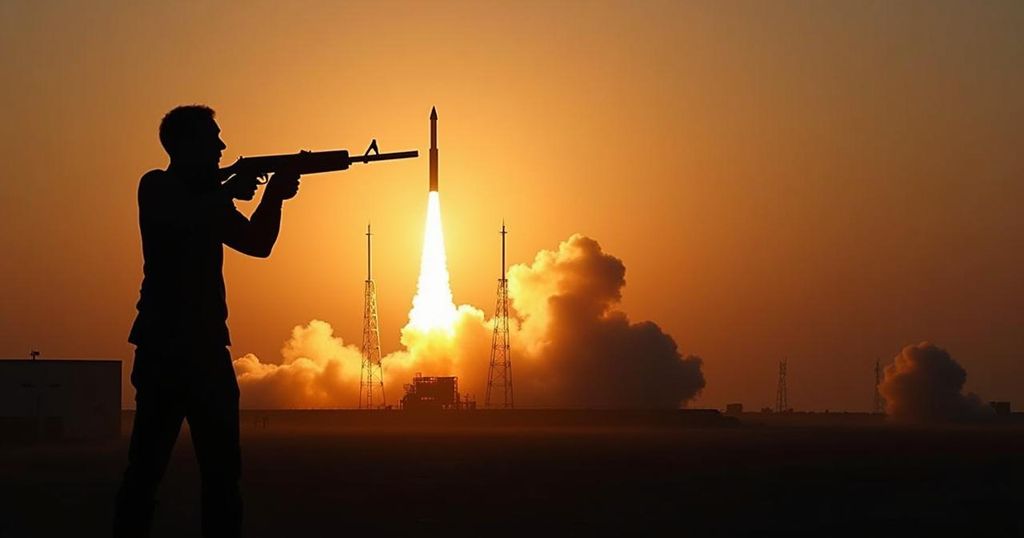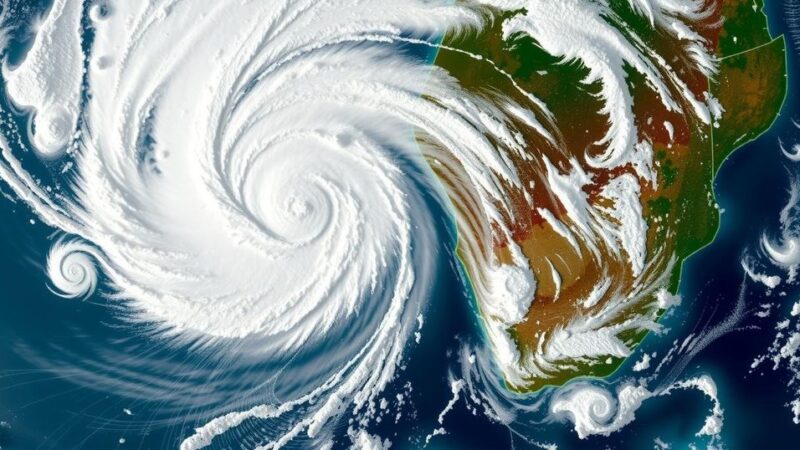Israel and the United States have stated that there will be consequences for Iran following a missile attack in which Iran launched nearly 200 ballistic missiles at Israel, claiming it was retaliation for the killings of Hamas and Hezbollah leaders. This comes amidst an ongoing military operation in Gaza and localized actions against Hezbollah in Lebanon.
On October 3, 2024, Israel and the United States marked a significant escalation in their stances against Iran following its missile attack on Israel, where approximately 200 ballistic missiles were launched. Iranian officials characterized their actions as retaliation for the recent targeted killings of prominent Hamas and Hezbollah leaders. Israeli Prime Minister Benjamin Netanyahu declared, “This evening, Iran made a big mistake — and it will pay for it.” Additionally, White House National Security Adviser Jake Sullivan affirmed that Iran would experience “severe consequences” for these aggressive actions. This incident unfolded in the context of Israel continuing localized ground raids aimed at displacing Hezbollah fighters from southern Lebanon. These operations are occurring amid Israel’s ongoing military campaign in Gaza, which has resulted in catastrophic humanitarian consequences in the region. In the broader context, the Israel-Gaza conflict, which escalated dramatically with Hamas’s unprecedented assault on Israel on October 7, 2023, continues to shape the geopolitical landscape, leading to collateral repercussions in neighboring areas. The escalating violence has led to significant loss of life, displacement, and severe humanitarian crises, notably in Gaza, where tens of thousands have died and millions more face dire conditions. Despite criticism from the international community for the scale of military operations, the United States continues to provide substantial support to Israel, further complicating diplomatic efforts for a peaceful resolution. The Israeli-Palestinian conflict is marked by deep-rooted historical tensions that have persisted for decades, exacerbated by recent events that have drawn in multiple regional players, notably Hezbollah and Iran. The situation remains fluid, with potential for further escalation as both Israel and its allies prepare to respond to Iranian provocations while managing the dynamics within Gaza and Lebanon.
The current conflict involving Israel, Gaza, and Iran is deeply entrenched in historical and geopolitical complexities that trace back to the establishment of Israel in 1948 and the subsequent unrest in the region. The recent hostilities have escalated sharply due to the violent repercussions of Hamas’s attacks on October 7, 2023, which led to Israel declaring war and launching military operations in Gaza in response to the losses suffered. The ongoing humanitarian crisis in Gaza draws attention to the severe consequences of these operations on civilian populations, leading the global community to call for humanitarian aid despite Israel’s resistance. The involvement of Iran and Hezbollah underscores the regional implications of the conflict, illustrating a broader struggle that extends beyond the Israel-Palestine issue and engages several state and non-state actors in a complex web of alliances and hostilities.
In summary, the recent missile attack by Iran against Israel has intensified the already volatile situation in the Middle East, compelling both Israel and the United States to issue vehement warnings of consequences for Iran. The historical context and the ongoing Israel-Palestine conflict, particularly the humanitarian crisis in Gaza, continue to inform the responses of all parties involved. As the situation unfolds, it remains imperative to monitor developments closely, as any further escalation could have significant ramifications for regional stability and international relations.
Original Source: www.washingtonpost.com






